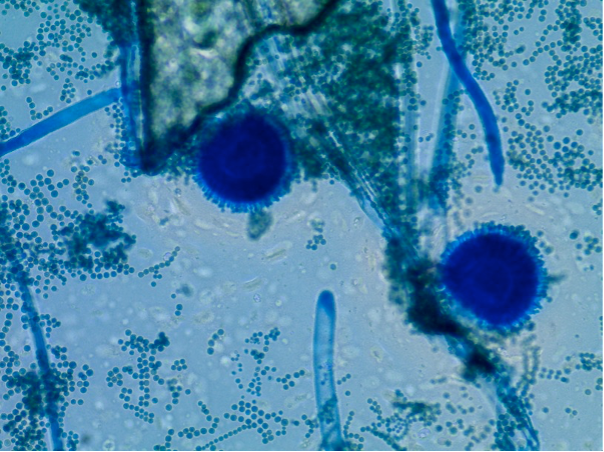Fungal Disease Global Fatality Projections Surge Twofold, New Estimate Shows

A groundbreaking study published in the prestigious Lancet Infectious Diseases journal has revealed that the global death toll from fungal disease has reached a staggering 3.75 million annually. This figure is double the previous estimate, highlighting the severity of the problem. The research, led by Professor David Denning from The University of Manchester, also uncovered that there are approximately 6.55 million acute cases of fungal disease each year across 80 countries.
While fungal disease can be caused by various factors, the new mortality statistics are alarming. Fungal disease claims the lives of six times more people than malaria and nearly three times as many as tuberculosis. These figures paint a grim picture of the devastating impact of fungal infections worldwide.
To obtain these groundbreaking results, over 300 professionals from around the globe collaborated, contributing their expertise and data to estimate the prevalence of fungal disease in their respective countries. Previous estimates were imprecise, as many fungal infections worsen existing severe conditions such as leukaemia or AIDS.
The study also revealed that around 68% of the deaths linked to fungal disease, approximately 2.55 million, were directly caused by the infection itself. Another 32%, equating to 1.2 million deaths, were associated with underlying diseases that were exacerbated by fungal infections.
In particular, fungal infections were found to be responsible for a significant portion of deaths related to chronic obstructive pulmonary disease (COPD) and pulmonary tuberculosis. Professor Denning discovered that approximately one-third of COPD deaths worldwide, totaling 3.23 million, could be attributed to the fungus Aspergillus. Similarly, as many as 340,000 deaths classified as pulmonary tuberculosis in 2019 may actually be attributable to fungal infections.
The study also shed light on the impact of fungal infections on other diseases. For instance, out of the estimated 311,594 global deaths from leukaemia in 2020, around 14,000 (4.5%) could be linked to aspergillosis and other fungal infections. Furthermore, aspergillosis was found to be implicated in approximately 49,000 (2.7%) of the 1.8 million annual deaths from lung and bronchus cancer.
Candida, another type of fungal infection, poses a serious threat in various medical settings, including intensive care units, complex surgical procedures, diabetes, cancer, renal failure, and premature babies. The researchers estimated that 1.57 million individuals suffer from Candida bloodstream infection or invasive candidiasis each year, resulting in 995,000 deaths (63.6%).
Professor Denning emphasized the significance of this study, stating that it is the first comprehensive global estimate of the annual incidence of fungal disease. However, he acknowledged that there are still gaps and uncertainties in our understanding of this issue. The research was made possible through the collaboration of numerous professionals worldwide, as well as the efforts of organizations like Global Action For Fungal Infections (GAFFI), The University of Manchester, the Fungal Infection Trust, CIFAR’s Fungal Kingdom: Threats and Opportunities program, and GAFFI’s global Ambassador network.




